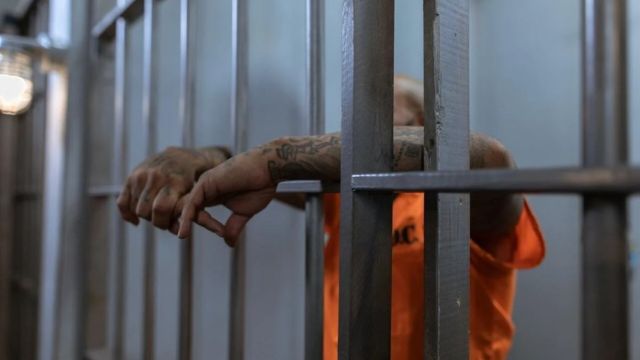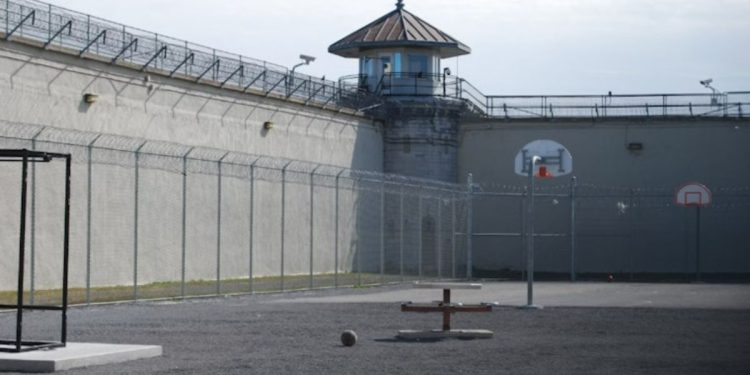New federal rules approved this month will result in a reduction of phone call costs for Texas prisoners. For some time now, inmates, as well as their loved ones and advocates, have been advocating for lower charges for phone calls made in jails, which currently stand at an exorbitant 23 cents per minute.
On Thursday, the Federal Communications Commission (FCC) approved new regulations that will impose a cap on the rates for phone and video calls made by inmates. The new regulations are set to take effect next year, and they will ensure that inmates are charged as low as 5 cents per minute for calls.
Across the state, prices, and limits for phone calls in correctional facilities vary depending on the size of the facility and differences in regulations between state and local authorities. The Texas Department of Criminal Justice lowered the cost of phone calls in state-managed correctional facilities to 6 cents per minute in 2018. However, county jails under local jurisdiction often charge rates higher than this amount.
According to the Prison Policy Initiative, , Texas prisons charged 23 cents per minute for a local phone call in 2021. However, the cost of video calls has been made free across the entire region.
Jessica Rosenworcel, the Chair of the FCC, has condemned the exorbitant prices charged by some cell phone service providers, terming them “unacceptable.”. She highlighted that in some instances, the cost of a single phone call can be equivalent to the price of a monthly unlimited cell phone plan.
All detention centers across the nation will be required to comply with the upcoming rules, with a gradual implementation period. The deadline for full compliance is set for April 1, 2026.
According to Drew Willey, a Houston-based attorney who has long been an advocate for providing free phone calls to inmates in Harris County Jail, the recent regulations mandating reduced fees are commendable. He believes that these regulations are necessary to prevent private companies from accumulating expenses that go unnoticed, particularly in areas where no one has taken notice of the issue. Willey has expressed his appreciation for the steps taken to prevent such serious breaches.
Taking into consideration the size of correctional facilities, the new caps have been designed with lower ceilings in larger jails and prisons.

The rates for phone calls have been recently established, ranging from 6 to 12 cents per minute, while video calls range from 11 to 25 cents per minute. It is worth noting that a law has been implemented in Texas, that limits the charges for services rendered at state correctional facilities to a maximum of 5 cents per minute.
By law, the state of Texas mandates that the revenue generated from telephone and video communications that originate from Texas Department of Criminal Justice facilities, including private prisons, correctional facilities, and state jails, must be divided between the state and the service provider.
As per the regulation, the state receives 40 percent of the earnings, while the contractor gets the remaining 60 percent. The majority of the funds allocated to the state are channeled toward the Texas Crime Victims Fund, and the remaining amount is directed to the general revenue fund.
Under the new FCC regulations, government agencies are restricted to a maximum of 2 cents per minute in fees. This means that the total cost of phone and video calls in Texas correctional facilities is capped at 5 cents per minute, as the government’s share of revenue cannot exceed the aforementioned limit.
The previous limit of 6 cents per minute for state inmates has been reduced by 16%. However, it is worth noting that this change does not affect local detention centers.
According to Willey’s statement, back in 2017, a 20-minute phone call used to cost a staggering $14.99 when he began his campaign in Harris County. However, things have changed since then, and inmates in Harris County are now allowed to make up to four free phone calls every week, thanks to a new agreement that has been put in place.
Moreover, for any extra calls made, there will be a charge of 2 cents per minute. Many prisons in the state still maintain a higher rate for this service.
Advocates are pushing to provide free phone calls to prisoners in Texas, a service already available in other states. Wiley, an advocate for the cause, believes that offering free phone calls can help prevent recidivism, ensure fair trials by providing access to adequate legal representation, improve the mental health of inmates, and enhance public safety by avoiding complete isolation of detainees during their reintegration into society.
Under the latest regulations, telecommunication companies are no longer allowed to charge extra fees for “additional services.” Previously, it was typical for companies to impose fees for services such as making a single call without a registered account or adding funds to an account to cover future calls.
In addition, this regulation ensures that telecommunications companies cannot seize any funds left in a released prisoner’s account. They are now obligated to make a reasonable attempt to refund any remaining money if they have knowledge of the prisoner’s release or if the funds have been inactive for 180 days.
If you are unable to return an item, you must surrender it to state programs that protect unclaimed funds. In Texas, for example, this would mean turning it over to the unclaimed property division of the state comptroller’s office. Shockingly, a recent lawsuit in Georgia revealed that Global Tel*Link, a company, managed to amass an average of more than $1.2 million per month from unclaimed funds over a period of eight years.
Starting from January 1, 2025, the regulations must be strictly followed by all correctional facilities and detention centers that have a daily average of 1,000 inmates or more. In contrast, prisons that accommodate less than 1,000 prisoners are mandated to comply with the regulations by April 1, 2025.
If correctional facilities have existing agreements with telecommunication companies by June 27, 2024, they must comply with the regulations either before the contract expires or by January 1, 2026, for larger facilities, and by April 1, 2026, for smaller ones.
According to a statement by the Prison Policy Initiative, the FCC’s decision is a significant win for incarcerated individuals, their loved ones, and advocates who have been battling against the exploitative prison telecom industry for many years. However, the victory does not signify the end of the struggle for fair communication rights.
According to Lioness Justice Impacted Women’s Alliance, an advocacy group dedicated to supporting incarcerated women in Texas, they will persist in their efforts to achieve “comprehensive reforms” that enable all individuals behind bars to maintain meaningful connections with their loved ones without encountering financial obstacles. This sentiment is shared by other advocates working towards the same goal.
The FCC has made a significant decision to ensure that telecom companies provide accessible communication devices and services to incarcerated people with disabilities. This includes phone calls, video chats, and messaging services, which are crucial for improving the communication options of incarcerated individuals who experience hearing or speech disabilities.
Companies have a responsibility to ensure that their devices and services are accessible to individuals with specific disabilities. In cases where this is not feasible, companies should guarantee that their systems are compatible with devices commonly used by people with disabilities.
In the wake of legal battles over the FCC’s power to control the rates of inmate calls, the federal government has implemented changes. Congress granted the FCC complete authority to regulate these calls in 2022 with the Martha Wright-Reed Just and Reasonable Communications Act. This Act is named after a grandmother who brought the issue of exorbitant rates to the FCC’s attention more than twenty years ago through a petition.
Rosenworcel declared that with the help of the new law, the long-standing issues were finally being addressed today.
On Monday, the regulation on inmate calls was officially cemented with the release of the final order by the FCC.




